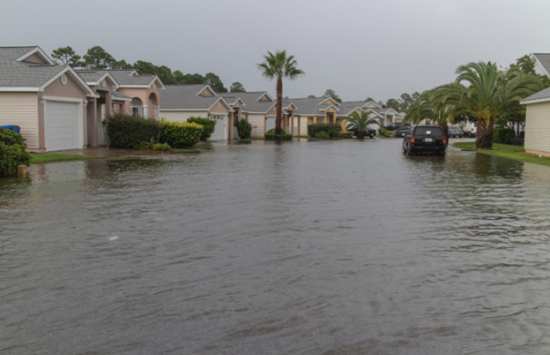Funded by the U.S. National Science Foundation, the Natural Hazards Engineering Research Infrastructure (NHERI) network advances natural hazards engineering research to protect human life, reduce damage and minimize economic losses during natural hazard events.
 On this page
On this page
What is NHERI?
NHERI is a nationwide, shared-use network of facilities. It provides the natural hazards research community with state-of-the-art research infrastructure, including:
- Experimental facilities.
- Cyberinfrastructure.
- Computational modeling and simulation tools.
- Data collections.
- Extreme events reconnaissance networks.
NHERI network
Experimental facilities
Located at universities across the U.S., NHERI's seven experimental facilities support research on mitigating damage caused by earthquakes, tsunamis, landslides, windstorms, storm surge and flooding, and other hazards. Its facilities are:
State-of-the-art instrumentation enabling physical modeling of complex flow fields, high-fidelity data collection, unique wind hazard simulation capabilities and high-throughput experimental testing.
Learn more about the Boundary Layer Wind Tunnel Facility
World-class geotechnical centrifuge modeling facilities for research on the performance of soil and soil-structure systems affected by earthquake, wave, wind and storm surges.
Learn more about the Geotechnical Centrifuge Facility
A large, high-performance outdoor shake table that enables seismic testing of large/full-scale structural, nonstructural, geotechnical and geostructural systems.
Learn more about the Large High Performance Outdoor Shake Table Facility
Specialized, large-scale instrumentation capable of generating wind waves and tsunamis for physical model testing of coastal systems.
Learn more about the Large Wave Flume and Directional Wave Basin Facility
Instrumentation to conduct large-scale, multi-degree-of-freedom and multi-directional hybrid simulations (i.e., cyber-physical systems) for low-cost pilot studies in natural hazards engineering.
Learn more about the Large-Scale, Multi-Directional, Hybrid Simulation Testing Facility
One-of-a-kind, mobile dynamic shakers for seismic testing of geotechnical and structural systems.
Learn more about the Mobile Field Shakers Facility
A large open-jet wind tunnel facility with distinct advantages over conventional wind tunnels.
Learn more about the Wall of Wind Facility


DesignSafe Cyberinfrastructure
DesignSafe, led by The University of Texas at Austin, provides researchers with high-performance computing, research workflows. data curation and publication, and large-scale data analytics and visualization.

Computational Modeling and Simulation Center
Led by the University of California, Berkeley, the SimCenter provides researchers with next-generation computational modeling and simulation software tools, user support and educational materials.

CONVERGE
The CONVERGE facility at the University of Colorado, Boulder advances the ethical conduct and scientific rigor of hazards and disaster research and strengthens networks between disciplinary communities.
It acts as the administrative hub for the Extreme Event Reconnaissance and Research (EER) networks.

Natural Hazards Reconnaissance (RAPID) facility
Based at the University of Washington, the RAPID facility provides researchers with hardware, software and expert support needed to collect, process and assess perishable data following natural hazard events and disasters.
Network Coordination Office
Located at Purdue University, the network coordination office serves as the administrative headquarters for NHERI's nationwide network.
Facilities under design
Two potential future facilities are currently being designed to address powerful winds, storm surge and related hazards.
Related funding
Major Research Instrumentation Program
Supports requests for up to $4 million from NSF for the development or acquisition of multi-user research instruments that are critical to the advancement of science and engineering.
Mid-scale Research Infrastructure-1
Supports the design and implementation of research infrastructure — including equipment, cyberinfrastructure, large-scale datasets and personnel — whose total project costs exceed the NSF Major Research Instrumentation program but are under $20 million.
Mid-scale Research Infrastructure-2
Supports the implementation of research infrastructure — including equipment, cyberinfrastructure, large-scale datasets and personnel — whose total project costs fall between $20 million and $100 million.


